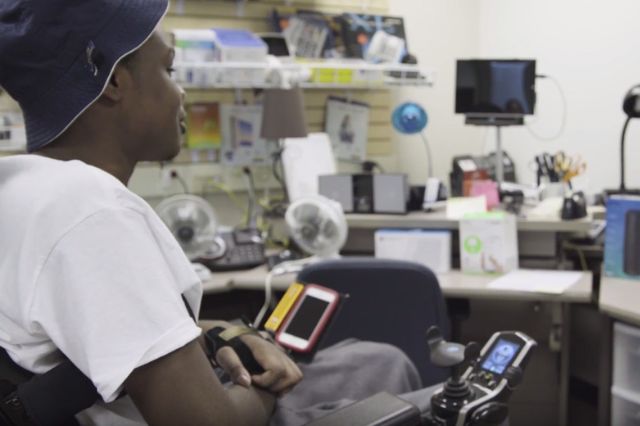Financial Information and Insurance Coverage
This page provides details on how payment is handled for inpatient and day program services.
If you have insurance coverage:
- Before your admission, a financial counselor contacted your insurance company to verify benefits and coverage.
- At the time of admission, you were provided a letter that gave you a cost estimate that included any co-payments, deductibles and other potential out-of-pocket expenses that will be your responsibility.
- If you go to Day Program, your case manager and outpatient financial counselor will coordinate arrangements for any deposits or special arrangements that are required and will review your coverage benefits with you.
- After discharge, you will receive a bill for any remaining amounts that are due that are your responsibility after your insurance company has completed its payments.
- The process to collect from your insurance carrier may take several months; therefore, we may not know the complete amount that is due until that time.
If you have no insurance or limited insurance benefits:
- Before your admission, a financial counselor should have contacted you to discuss options and expected charge estimates.
- At the time of admission, any required deposits are discussed and method of payment is determined.
- Charges are reviewed on a weekly basis and additional deposit will be requested as needed.
- If you have no insurance, the self-pay discount will be applied based on current Shepherd Center policies.
- If you are referred to Outpatient or Day Program, the same process will be repeated but will be coordinated through your case manager and the outpatient financial counselor.
You may be eligible for reduced cost services:
- Shepherd Center is a participant in the Georgia Indigent Care Trust Fund, which means patients who are Georgia residents and who meet certain guidelines may be eligible for some reduced cost services.
- The financial counselor will assist you in applying to determine if you qualify.
- Other funding sources may be available if the Georgia Indigent Care Trust Fund has been exhausted.
- All patients will be screened at the time of admission to determine if they may meet assistance criteria, but please contact the financial counselor if you have any questions regarding your eligibility.
Billing information – What Will I See on My Bill?
The inpatient bill will include:
- Daily room charges and a “care” charge, which covers your nursing care, meals and housekeeping.
- Additional items for services your doctor orders such as therapies, laboratory tests, x-rays, medical supplies, operating room charges, medicine and any other special treatments or tests.
The Day Program bill will include:
- A list of all the therapy services you received, meals if appropriate and team conference charges.
- If you are in the Residential Program at Pathways, the bill will also include daily room and care charges.
Diagnostic testing, medications and any necessary visits to a specialty clinic will be billed separately through Outpatient Services.
- You may receive separate bills for some services not included in your hospital charges. This could include a bill from your doctor, neuropsychological providers, or from any consulting doctors you might have. For example, you may receive a bill from an outside medical group for the reading of x-rays. You will need to contact the phone number listed on these bills if you have questions.
Financial Counselor Access
The phone number to reach a financial counselor while you are a patient in the hospital is 404-350-7544. The financial counselor for Day Program and Outpatient Services can be reached by calling 404-350-7323.
Government Insurance Programs
Medicaid is a state medical assistance program for low-income individuals and families.
- If you receive Supplemental Security Income (SSI) monthly payments, you will automatically be eligible for Medicaid.
- You will receive a plastic Medicaid card in the mail once you are approved for SSI. This is your permanent card.
- It is important that you give copies of all of the Medicaid information you receive to your case manager when you receive it.
- Your case manager will make sure that the business office receives your Medicaid number to order any medical equipment you will need and bill Medicaid for your hospital stay.
Medicare is a federal health insurance program for people 65 or older and people with a disability who receive Social Security Disability Income (SSDI).
- Social Security offices will take applications for Medicare and answer your questions.
- You are eligible for Medicare hospital insurance after you have been entitled to monthly SSDI benefits for 24 months.
- If you want the medical insurance or Part B of Medicare coverage, you must enroll and pay a monthly premium.
Information About Social Security
There are two types of Social Security programs for which you may be eligible: Supplemental Security Income (SSI) and Social Security Disability Income (SSDI).
- These programs provide benefits for people who are considered disabled according to specific guidelines set forth by the Social Security Administration.
- To be considered disabled by the Social Security Administration, you must meet two criteria: (1) have a physical or mental impairment, which can be verified medically and will result in death or last for a continuous period of at least 12 months; or (2), be unable to engage in any substantial gainful employment activity in any occupation in the nation.
SSI (Supplemental Security Income):
- Eligibility is based upon financial need and living situation.
- Your personal or family resources and income must not exceed specified limits to qualify for SSI.
SSDI (Social Security Disability Income):
- Eligibility is based on the number of years of employment.
- There is no financial needs requirement for eligibility.
- People who are considered disabled and at least 18 years old can qualify for SSDI even if they haven’t contributed the number of work credits needed.
- The amount of monthly benefits is related to your previous earnings. The more earnings you received prior to being considered disabled, the higher your payment will be. Some people who have received low wages prior to their disability and paid less into Social Security may be eligible for both SSDI and SSI.
Applying for Social Security Benefits:
Scheduling an appointment:
- An appointment will be scheduled by the Shepherd Center Admissions Department for you to meet with the Disability Specialist.
- After the initial paperwork has been completed, you will be scheduled to meet with a Social Security representative.
- If you do not know your appointment time, please call Admissions at 404-350-7345 or the Disabilities Specialist at 404-350-7489 to confirm.
When to Apply: It is important that you apply for SSDI and SSI as soon as possible. It usually takes about three months for the Social Security Administration to process an application. If you apply after discharge from Shepherd Center, please call the Social Security Administration at (800) 772-1213 or your local Social Security office.
What to Bring: It would be helpful if you bring your certified birth certificate.
How to Apply for Retroactive Medicaid Benefits
You will need to apply for retroactive Medicaid benefits as soon as you have received a letter in the mail stating that you are eligible for Medicaid and SSI. When you are approved for Medicaid, you are considered eligible from the date you filed your Supplemental Security Income (SSI) application. Retroactive benefits (3 months prior Medicaid) can extend the date of your SSI application.
For example, if you applied for SSI in June and you were injured in March, you may qualify for Medicaid in March, April, and May if you apply for retroactive benefits. This is especially important if you do not have other insurance and Medicaid is expected to pay your hospital bills.
Where to Apply: Your local Department of Family and Children Services (DFCS) office.
When to Apply: After you have received a letter from the Social Security Administration stating that you were approved for Medicaid.
What to Bring: Letter from the Social Security Administration stating that you were approved for SSI/Medicaid and any unpaid medical bills you have.
Your case manager and the business office at Shepherd Center will need a copy of your approval statement for the three months prior Medicaid.





